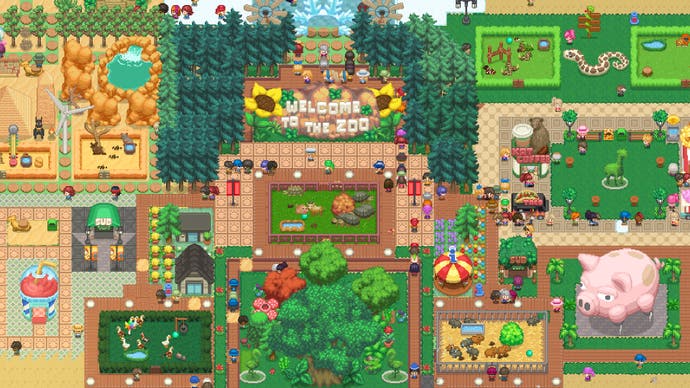How region-hopping game customers unintentionally helped an indie become a hit
Jump man.
The growing popularity of digital purchases has had the unintended effect of breaking down regional pricing barriers designed to keep games affordable all over the world.
This is due to "region-hopping" - a tactic used by those seeking to take advantage of lower prices in other countries, as publishers adjust the price of games in each region based on median incomes.
The trouble with this is it means customers from richer economies can also loophole themselves into grabbing a game for significantly cheaper than their own local pricing.
This can dent the revenues of developers and publishers, especially those on the smaller side - but can also sometimes help.
In an unexpected twist to the norm, former games journalist turned publishing expert Mike Rose shared a story of how his publisher's latest game had unintentionally benefited from region-hopping.
Let's Build a Zoo, published by Rose's No More Robots, was listed for pre-order on Nintendo's eShop on 22nd September.
Overnight, pre-orders shot up, and Rose has said he woke up pleased by the number of pre-orders - at least until he checked where those pre-orders were coming from. "Oh. Shit," expressed Rose. Eighty-five percent of the pre-orders were coming from Argentina, where it was priced at approximately $1.50 US - a huge gap from the £15.49 pricing in the UK.
It was clear most of the pre-orders weren't coming from customers actually residing in Argentina, and it was at this point Rose discovered Let's Build a Zoo was featured on several eShop regional price comparison sites.
This, says Rose, left his team with a difficult dilemma. They could raise the price in Argentina at the cost of pricing out the game to legitimate local customers, or keep the price the same knowing illegitimate sales were going through.
That's when the twist happened. At the end of the second day of pre-orders, Let's Build a Zoo was now rapidly climbing the eShop charts in the Americas, becoming one of the top 100 best sellers.
Crucially, Nintendo groups the entire continent together, meaning the game was listed in the top 100 charts in the United States.
In Rose's own words, by the time the game launched on 29th October, "we were attracting the attention of *way* more US players - loads more attention than we would have got if we hadn't been so high up the charts."
Better yet, Rose says, because of the traction it gained in the US, the EU eShop team also featured the game prominently in Europe and Australia, leading to higher-than-expected sales there. The end result was that people were on average paying over $20 for the game.
Although it worked out for Let's Build a Zoo, plenty of other projects are hurt by people exploiting regional pricing, so I asked Rose if he would support region locking.
Despite the problem of region-hopping, Rose told me he opposes region-locking consoles. He fondly remembers buying US and Japanese Nintendo DS games that never came to Europe, so personally wouldn't want to see that go away.





